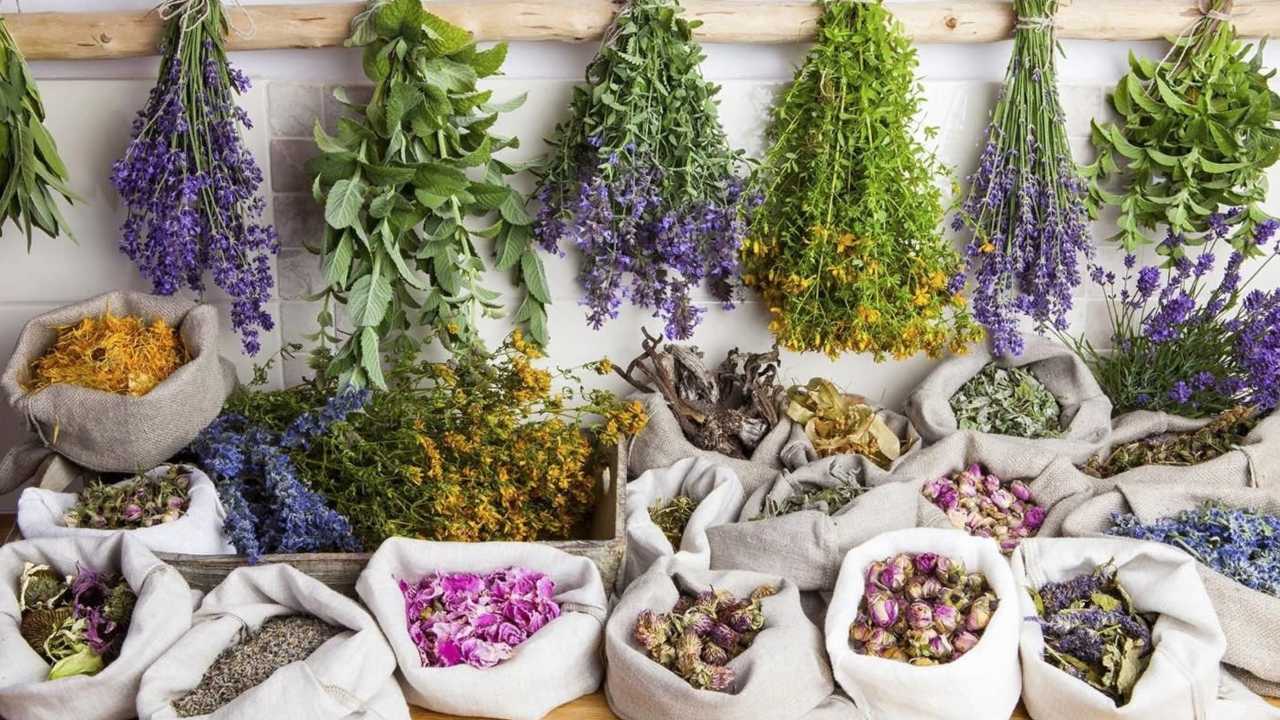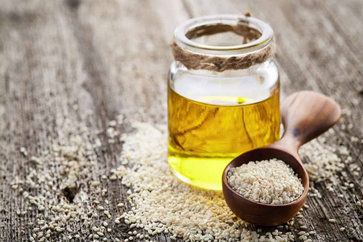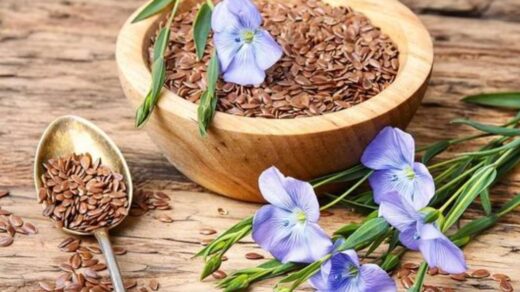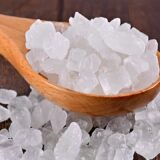Top 30 Medicinal Plants and Their Uses in India
Medicinal plants occupy a central role in Indian traditional medicine, particularly within the Ayurvedic system. Ayurveda, meaning “the science of life,” integrates natural remedies to support health, balance, and longevity. Medicinal plants are highly valued for their therapeutic properties and are fundamental to this holistic approach. 
In Ayurveda, these plants are utilized in various forms, including fresh, dried, powdered, and as extracts, to address a wide range of health issues. They are recognized for their diverse effects, such as anti-inflammatory, antimicrobial, and restorative benefits, making them essential in both preventive care and treatment.
Uses of Medicinal Plants in Ayurveda
The use of medicinal plants in India has a rich historical background. Ancient Ayurvedic texts such as the “Charaka Samhita” and “Sushruta Samhita” extensively document the medicinal properties of various plants.
These texts offer detailed descriptions of how plants were used to treat ailments and maintain health, often combining multiple plants into complex formulations for therapeutic purposes.
Historical records also reveal the integration of plants into daily health practices, rituals, and cosmetic preparations. In addition to Ayurvedic scriptures, ancient Indian art and literature often highlight the significance of medicinal plants.
This long tradition of plant use has been passed down through generations, illustrating the deep-rooted cultural and medical importance of these natural resources.
Ayurvedic Medicinal Plants And Their Uses
Indian medicinal plants are integral to Ayurveda, offering a wealth of therapeutic benefits that have been recognized and utilized for centuries. Each plant serves specific health purposes, ranging from digestive health to skin care.
Here’s a detailed overview of some key Indian medicinal plants, including their Hindi names, English names, botanical names, and their uses:
1. Adusa (अडूसा) – Malabar Nut (Adhatoda vasica Nees): Known for its effectiveness in treating respiratory ailments, Adusa helps in managing coughs, asthma, and bronchitis. Its expectorant properties make it useful for alleviating congestion and promoting easier breathing, thus supporting overall respiratory health.
2. Ananas (अनानास) – Pineapple (Ananas comosus): Pineapple is renowned for its high vitamin C content, aiding in immune system support and reducing inflammation. It is beneficial for soothing sore throats, managing diabetes through its insulin-like properties, and addressing heart disease and obesity due to its enzyme bromelain.
3. Babool (बबूल) – Indian Gum (Acacia arabica Willd): The Babool tree offers multiple health benefits, particularly for oral hygiene. It is used to treat bleeding gums, mouth ulcers, and wounds. Its astringent properties help in tightening tissues and facilitating wound healing, contributing to overall oral and skin health.
4. Brahmi (ब्रह्मी) – Thyme-Leaved Gratiola (Bacopa monnieri Pennel): Brahmi is celebrated for its cognitive benefits, enhancing memory and concentration. It also helps in reducing anxiety and stress, promoting mental clarity and overall cognitive function. Its adaptogenic properties support mental resilience and emotional well-being.
5. Dhaniya (धनिया) – Coriander (Coriandrum sativum Linn): Coriander seeds are known for their digestive benefits, helping to alleviate indigestion, flatulence, and abdominal discomfort. They also have anti-spasmodic properties that can ease cramping and pain, and their mild flavor makes them a versatile culinary herb.
6. Kalmegh (कलमेघ) – Kalmegh (Andrographis paniculata): Kalmegh is highly valued for its detoxifying and digestive benefits. It aids in relieving indigestion, treating acne, and managing diarrhea. Its strong anti-inflammatory properties also support liver health, enhancing its ability to detoxify the body.
7. Lashun (लहसुन) – Garlic (Allium sativum): Garlic is a powerhouse of medicinal benefits, known for its antimicrobial and anti-inflammatory properties. It helps in treating ringworm, dysentery, and wounds. Regular consumption supports cardiovascular health by reducing blood pressure and cholesterol levels.
8. Nagarmotha (नागरमोथा) – Nut Grass (Cyperus rotundus Linn): Nut Grass is useful in treating fever and managing diabetes due to its blood sugar-lowering properties. It also aids in relieving solar dermatitis, a skin condition caused by excessive sun exposure, promoting skin health and overall well-being.
9. Punarnava (पुनर्नवा) – Spreading Hogweed (Boerhaavia diffusa Linn): Punarnava is known for its ability to support kidney health and manage anemia. It aids in liver detoxification, wound healing, and alleviating edema. Its diuretic properties help in maintaining fluid balance and reducing swelling.
10. Shalparni (शलपर्णी) – Shal Leafed Bush (Desmodium gangetium DC): Shalparni is recognized for its analgesic and anti-inflammatory properties, making it effective in relieving pain and reducing inflammation. It is used to manage conditions like arthritis and muscle soreness, contributing to overall joint health.
11. Tulsi (तुलसी) – Holy Basil (Ocimum sanctum Linn): Tulsi is a revered herb with numerous health benefits, including supporting digestive health, cardiovascular function, and respiratory wellness. Its adaptogenic properties help in managing stress, while its anti-inflammatory effects promote overall immune health.
12. Vridhadaru (वृद्धादरु) – Elephant Creeper (Argyreia speciosa Sweet): Vridhadaru is used for managing diabetes and promoting skin health. It also aids in wound healing due to its anti-inflammatory and regenerative properties, helping to accelerate recovery and improve overall skin condition.
13. Agarkasth (अगरकस्थ) – Eagle Wood (Aquilaria agallocha Roxb): Agarkasth is traditionally used to address urinary bladder issues and bed-wetting. Its calming properties also support bladder health and help in managing urinary incontinence, contributing to improved quality of life.
14. Ankol (अंकोल) – Sage Leaf Alangium (Alangium salvifolium): Ankol is traditionally used in treating bites from snakes, scorpions, and dogs. Its therapeutic properties provide relief from envenomation symptoms, making it a valuable remedy in emergency situations involving animal bites.
15. Badi Elaichi (बड़ी इलायची) – Greater Cardamom (Amomum subulatum Pennel): Greater Cardamom is valued for its digestive benefits, acting as an appetizer and aiding in digestion. It also helps manage bronchitis and asthma, providing relief from respiratory discomfort and supporting overall lung health.
16. Chirchita (चिचड़ा) – Prickly Chaff Flower (Achyranthes aspera): Chirchita is used to treat indigestion, coughs, and asthma. Its therapeutic properties extend to improving liver health and managing respiratory conditions, making it a versatile herb in traditional medicine.
17. Elaichi (इलायची) – Lesser Cardamom (Elettaria cardamomum Maton): Lesser Cardamom is effective in treating nausea, vomiting, and dry cough. Its aromatic properties also contribute to digestive health by alleviating gastrointestinal discomfort and enhancing overall digestive function.
18. Kanghi (कांघी) – Country Mallow (Abutilon indicum): Kanghi acts as a nervine tonic, supporting nervous system health and improving strength. It is also used for managing joint disorders, contributing to overall vitality and well-being through its restorative properties.
19. Malakangini (मलाकंगिनी) – Staff Tree (Celastrus paniculatus Willd): Malakangini is known for its benefits in relieving muscle cramps, backaches, and osteoarthritis. It also promotes hair care, improving scalp health and reducing hair fall through its rejuvenating properties.
20. Neem (नीम) – Margosa Tree (Azadirachta indica A. Juss): Neem is renowned for its comprehensive therapeutic benefits, including skin health, eye disorders, and treatment of intestinal worms. Its antimicrobial and anti-inflammatory properties make it a versatile remedy for various health issues.
21. Pyaj (प्याज) – Onion (Allium cepa Linn): Onion is beneficial for prostate health and digestive support. Its compounds have anti-inflammatory and antioxidant effects, aiding in digestion and promoting overall well-being by supporting prostate and gastrointestinal function.
22. Shatavari (शतावरी) – Asparagus (Asparagus racemosus Willd): Shatavari supports reproductive health by addressing infertility, improving libido, and promoting uterine health. It also enhances lactation in nursing mothers, providing comprehensive support for women’s health.
23. Ulatkambal (उलटम्बल) – Devil’s Cotton (Abroma augustum): Ulatkambal is used to manage gynecological problems and irregular menstrual cycles. Its therapeutic properties support hormonal balance and menstrual health, contributing to overall reproductive wellness.
24. Yavasa (यवसा) – Camel Thorn (Alhagi camelorum): Yavasa is effective in treating rheumatism, vomiting, stomachaches, and constipation. Its digestive and anti-inflammatory properties support gastrointestinal health and alleviate discomfort associated with these conditions.
25. Akarkara (अकर्करा) – Pellitory (Anacyclus pyrethrum): Akarkara is used to alleviate toothache, dryness of the mouth and throat, and catarrh. Its stimulating properties help enhance appetite and digestive function, contributing to overall oral and digestive health.
26. Ashgandh (अश्वगंधा) – Winter Cherry (Withania somnifera Dunal): Ashgandh is valued for its stress-relieving and immune-boosting properties. It helps manage joint pain and promotes skin health, enhancing overall physical and mental well-being through its adaptogenic effects.
27. Bael (बेल) – Bengal Quince (Aegle marmelos Corr.): Bael is known for its cooling effects on the body and digestive benefits. It helps manage dysentery, diabetes, and supports gut health by promoting proper digestion and easing gastrointestinal discomfort.
28. Chitrak (चित्रक) – Leadwort (Plumbago zeylanica Linn): Chitrak is used to treat arthritis, skin diseases, and menstrual disorders. Its therapeutic properties support weight management and contribute to overall wellness through its anti-inflammatory and detoxifying effects.
29. Ghee Kunwar (घीकुंवर) – Aloes (Aloe vera Tourn ex. Linn): Ghee Kunwar is effective in treating ulcers, burn injuries, jaundice, and acne. Its soothing and healing properties aid in skin repair and overall health, providing relief from various dermatological conditions.
30. Ketaki (केटकी) – Crepe Ginger (Costus speciosus (Koeing) Sm.): Ketaki is beneficial for managing obesity, hyperlipidemia, and diabetes. Its properties aid in regulating metabolism and supporting weight management, contributing to overall metabolic health.
31. Mandukparni (मंडूकपर्णी) – Gotu Kola (Centella asiatica Urban): Mandukparni supports cognitive function, memory enhancement, and hair care. Its rejuvenating properties contribute to brain health and overall vitality, improving mental clarity and hair strength.
32. Palasha (पलाश) – Flame of the Forest (Butea monosperma Kuntze): Palasha helps in improving skin complexion, treating worm infestations, and managing roundworm infections. Its therapeutic properties support skin health and digestive wellness.
33. Ratti (रत्ती) – Rosary Pea (Abrus precatorius): Ratti is used to treat joint pains, fungal skin infections, and alopecia. Its properties help in alleviating pain and promoting skin and hair health, contributing to overall physical well-being.
34. Shirish (शिरीष) – Siris Tree (Albizia lebbeck (Linn) Benth Pennel): Shirish is effective in managing bronchial asthma and supporting detoxification. Its properties help cleanse the body and support respiratory health, contributing to overall well-being.
35. Bach (बच) – Sweet Flag (Acorus calamus): Bach is used for treating flatulent colic, atonic dyspepsia, and ulcers. Its digestive and carminative properties aid in alleviating gastrointestinal discomfort and promoting digestive health.
36. Amaltas (अमलतास) – Indian Laburnum (Cassia fistula Linn): Amaltas serves as a mild laxative, aiding in the treatment of ulcers and wounds. Its gentle purgative properties support digestive health and wound healing.
37. Ashok (अशोक) – Sorrowless Tree (Saraca indica): Ashok is known for its benefits in managing menstrual irregularities and stimulating uterine health. Its properties support reproductive health and alleviate menstrual discomfort.
38. Bharangi (भरंगी) – Bharangi (Clerodendron serratum Moon): Bharangi is used to treat common cold, chronic sinusitis, and allergic rhinitis. Its soothing properties support respiratory health and help alleviate symptoms of nasal congestion and sinus inflammation.
39. Chitvan (चितवन) – Dita (Alstonia scholaris): Chitvan is beneficial for treating skin ulcers, fever, and increasing lactation. Its therapeutic properties support skin health and enhance milk production in nursing mothers.
40. Guggulu (गुग्गुलु) – Indian Bdelium (Commiphora mukul Engl): Guggulu is valued for its effectiveness in treating joint disorders, heart diseases, and lowering lipid levels. Its anti-inflammatory properties contribute to overall cardiovascular and musculoskeletal health.
41. Kadirkasth (कदीरकस्थ) – Cutch Tree (Acacia catechu Willd): Kadirkasth is used for skin and respiratory problems, oral hygiene, and as an astringent. Its therapeutic properties aid in treating various skin conditions and supporting oral health.
42. Meetha Vish (मीठा विष) – Monkshood (Aconitum ferox): Meetha Vish is used for managing fever, providing diuretic action, and treating arthritis. Its properties support fever reduction and joint health through its potent therapeutic effects.
43. Patha (पठा) – Velvet Leaf Tree (Cissampelos pareira Linn): Patha is used to treat ulcers, sinus issues, skin diseases, and poisonous bites. Its therapeutic properties support wound healing and overall health by addressing various health concerns.
44. Senna (सना) – Indian Senna (Cassia angustifolia Vahl): Senna is utilized as a laxative and for treating constipation, irritable bowel syndrome, and weight loss. Its natural laxative effects support digestive health and promote regular bowel movements.
45. Supari (सुपारी) – Areca Nut/Betelnut (Areca catechu Linn): Supari is employed for managing obesity, hyperlipidemia, diabetes, and irregular menstruation. Its properties aid in controlling weight, supporting metabolic health, and regulating menstrual cycles.
46. Vajradanti (वज्रदन्ती) – Barleria (Barleria prionitis Linn): Vajradanti strengthens teeth and is useful in managing fever and catarrh. Its medicinal properties contribute to oral health and help alleviate symptoms associated with fever and respiratory conditions.
47. Amla (आंवला) – Indian Gooseberry (Emblica officinalis Linn): Amla is a potent antioxidant that aids in managing stress, constipation, and fever. Its rich vitamin C content supports immune function and overall health, contributing to well-being and vitality.
48. Atees (अटिश) – Indian Atees (Aconitum heterophyllum Wall): Atees is used for treating fever and respiratory issues. Its therapeutic properties help reduce fever and support respiratory health, contributing to overall wellness.
49. Bhojpatra (भोजपत्र) – Himalayan Birch (Betula utilis D. Don): Bhojpatra aids in wound healing and managing obesity. Its therapeutic properties support skin repair and contribute to weight management through its natural health benefits.
50. Dalchini (दालचीनी) – Bark Cinnamon (Cinnamomum zeylanicum Breyn): Dalchini is known for its antibacterial and antiseptic properties. It aids in managing infections, promoting oral health, and supporting overall digestive and metabolic function.
51. Jimikand (जिमीकंद) – Elephant Yam (Amorphophallus campanulatus): Jimikand is beneficial for treating dysentery, piles, and hemorrhoids. Its therapeutic properties support digestive health and provide relief from gastrointestinal discomfort and related conditions.
52. Kulanjan (कुलांजन) – Greater Galangal (Alpinia galanga): Kulanjan helps with flatulence, dyspepsia, vomiting, motion sickness, and catarrh. Its digestive and carminative properties contribute to gastrointestinal health and alleviate discomfort from digestive issues.
53. Mulethi (मुलेठी) – Liquorice (Glycyrrhiza glabra Linn): Mulethi is used for digestive disorders, ulcers, bronchitis, and skin health. Its soothing properties support gastrointestinal health, ease respiratory conditions, and promote overall skin wellness.
54. Pippali (पिप्पली) – Long Pepper (Piper longum Linn): Pippali aids in treating asthma, cough, and indigestion. Its stimulating properties enhance digestive function and respiratory health, contributing to overall well-being and vitality.
55. Shalai Guggal (शलई गुग्गुल) – Indian Olibanum (Boswellia serrata Roxb.): Shalai Guggal is used for joint pains, headaches, and diabetes. Its anti-inflammatory properties support musculoskeletal health and contribute to overall pain relief and metabolic balance.
56. Tamalpatra (तामलपत्र) – Cinnamon Leaf (Cinnamomum tamala Nees): Tamalpatra aids in managing diabetes, digestion, and cold symptoms. Its properties support metabolic health and provide relief from digestive discomfort and respiratory issues.
57. Varun (वरुण) – Three-Leafed Caper (Crataeva nurvala Buch-Ham): Varun is utilized for treating kidney stones, bladder stones, and prostate health. Its diuretic properties help in managing urinary tract health and supporting overall renal function.Jatamansi (जटामांसी) – Spikenard (Nardostachys jatamansi): Jatamansi is highly valued for its calming and sedative properties, making it effective in treating anxiety, insomnia, and stress-related disorders. It also supports cognitive function by enhancing memory and concentration, and its anti-inflammatory properties can help with joint pain.
58. Jatamansi (जटामांसी) – Spikenard (Nardostachys jatamansi): Jatamansi is highly valued for its calming and sedative properties, making it effective in treating anxiety, insomnia, and stress-related disorders. It also supports cognitive function by enhancing memory and concentration, and its anti-inflammatory properties can help with joint pain.
59. Chandan (चंदन) – Sandalwood (Santalum album): Chandan is renowned for its cooling and soothing effects on the skin. It is used to treat skin conditions like acne and eczema, and its aromatic properties make it beneficial for relaxation and mental clarity. Additionally, it supports urinary health and can be used as a mild diuretic.
60. Haritaki (हरितकी) – Chebulic Myrobalan (Terminalia chebula): Haritaki is a powerful detoxifying herb known for its digestive benefits. It aids in relieving constipation, improving gut health, and balancing the digestive system. Its antioxidant properties help in rejuvenating cells, enhancing overall health, and promoting longevity.
This extensive list showcases the diverse range of Indian medicinal plants, each offering unique health benefits and contributing to holistic well-being through traditional and natural remedies.
In conclusion, Indian medicinal plants offer a treasure trove of natural remedies that have been honed over millennia through the principles of Ayurveda. Their diverse applications highlight the holistic approach of traditional medicine, addressing not only physical ailments but also mental and emotional well-being.


























Very Good
There are many flowers that are used in kitchens worldwide for their amazing flavours, they have many precious nutrients here are a list of some of the most popular edible flowers,
Daisies, Pansies, Day lilies, Achillea, Borage, Dandelion, Artichoke, Banana Blossoms, Chamomile, Carnations, Chicory, Yucca etc.
Good..In spite of the fact, that knowledge to the healing powers of flowers and herbs goes back many centuries; the modern world also cannot ignore its benefits.
I would like like to purchase some of this plants where can i get them?